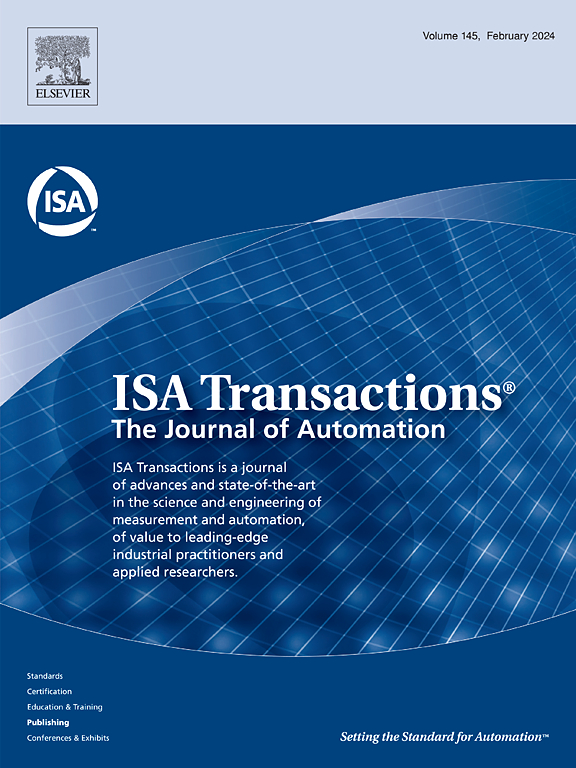Finite-time hybrid impulsive formation tracking control of multi-agent systems via aperiodic intermittent communication
IF 6.3
2区 计算机科学
Q1 AUTOMATION & CONTROL SYSTEMS
引用次数: 0
Abstract
This article studies the problem of formation tracking control in multi-agent systems, achieved in finite time, under challenging conditions such as strong nonlinearity, aperiodic intermittent communication, and time-delay effects, all within a hybrid impulsive framework. The impulses are categorized as either stabilizing control impulses or disruptive impulses. Furthermore, by integrating Lyapunov-based stability theory, graph theory, and the linear matrix inequality (LMI) method, new stability criteria are established. These criteria ensure finite-time intermittent formation tracking while considering weak Lyapunov inequality conditions, intermittent communication rates, and time-varying gain strengths. Additionally, the approach manages an indefinite number of impulsive moments and adjusts the control domain’s width based on the average impulsive interval and state-dependent control width. Numerical simulations are provided to validate the applicability and effectiveness of the proposed formation tracking control protocols.
通过非周期性间歇通信实现多代理系统的有限时间混合脉冲编队跟踪控制
本文在混合脉冲框架内,研究了在有限时间内,在强非线性、非周期性间歇通信和时间延迟效应等挑战性条件下,多代理系统中的编队跟踪控制问题。脉冲分为稳定控制脉冲和破坏脉冲。此外,通过整合基于 Lyapunov 的稳定性理论、图论和线性矩阵不等式(LMI)方法,建立了新的稳定性标准。这些标准在考虑弱 Lyapunov 不等式条件、间歇通信速率和时变增益强度的同时,确保了有限时间间歇编队跟踪。此外,该方法还能管理不定数量的脉冲时刻,并根据平均脉冲间隔和与状态相关的控制宽度调整控制域的宽度。数值模拟验证了所提出的编队跟踪控制协议的适用性和有效性。
本文章由计算机程序翻译,如有差异,请以英文原文为准。
求助全文
约1分钟内获得全文
求助全文
来源期刊

ISA transactions
工程技术-工程:综合
CiteScore
11.70
自引率
12.30%
发文量
824
审稿时长
4.4 months
期刊介绍:
ISA Transactions serves as a platform for showcasing advancements in measurement and automation, catering to both industrial practitioners and applied researchers. It covers a wide array of topics within measurement, including sensors, signal processing, data analysis, and fault detection, supported by techniques such as artificial intelligence and communication systems. Automation topics encompass control strategies, modelling, system reliability, and maintenance, alongside optimization and human-machine interaction. The journal targets research and development professionals in control systems, process instrumentation, and automation from academia and industry.
 求助内容:
求助内容: 应助结果提醒方式:
应助结果提醒方式:


